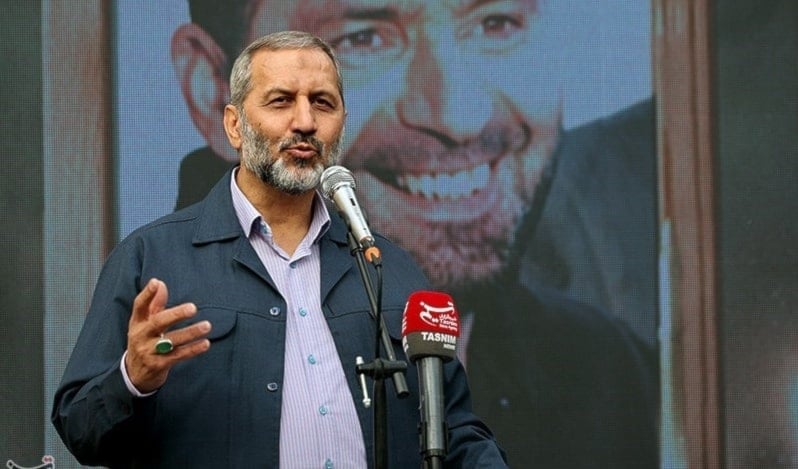Iran swiftly rebuilt command structure, hit deep in 'Israel': Analyst
Tehran continues launching missiles at "Israel" even after losing top commanders, showcasing utmost resilience.
-

Brigadier General Majid Mousavi appointed as the new IRGC Aerospace commander, speaks at a public event, on June 14, 2025. (Tasnim news agency)
Iran’s continued missile strikes on "Israel" are demonstrating that Tehran's military forces remain capable of regrouping and retaliating, even after losing several top commanders in Israeli attacks.
Speaking to CNN, Trita Parsi, vice president of the Quincy Institute for Responsible Statecraft, said the Israeli regime miscalculated Iran’s ability to recover following the killing of senior military officials.
“They [the Israelis] underestimated the Iranian ability to regroup after the Israelis very successfully targeted the top leadership of the Iranian military and managed to kill several of them,” Parsi said.
According to Parsi, the Israeli regime believed it had “disrupted Iranian command and control,” but that assumption quickly proved false. He emphasized that Iran had swiftly rebuilt its command structure.
“What we are seeing now is that Iranian missiles are successful in penetrating all layers of Israel’s air defense systems,” he told CNN, referencing the ongoing waves of Iranian missile retaliation.
Early Monday morning, new barrages of missiles launched by Iran struck multiple locations in the occupied territories.
Tehran residents steadfast amid ongoing strikes
The steadfast people of Iran have held multiple public demonstrations in support of the strikes against the Israeli regime. Simultaneously, in "Israel", explosions lit up the night sky with multiple buildings reportedly hit by Iranian projectiles.
The latest developments come in the aftermath of "Israel’s" unprecedented military operation last week, dubbed "Operation Rising Lion," which killed several of Iran’s top-ranking military officials, alongside tens of civilians.
Among the dead were the head of the Islamic Revolutionary Guard Corps (IRGC), its air force chief, and a former national security chief, delivering one of the most significant blows to Iran’s military leadership in recent years.
With no signs of de-escalation, both Iran and the Israeli regime continue to exchange strikes, widening the scope of the confrontation. Observers warn that the situation may evolve into a prolonged conflict with unpredictable consequences for the region.

 2 Min Read
2 Min Read










